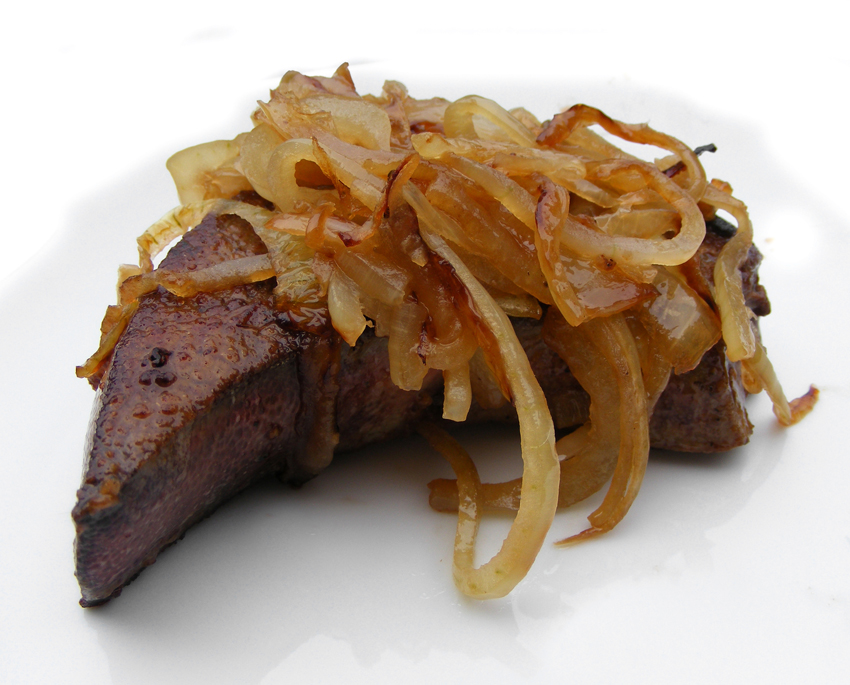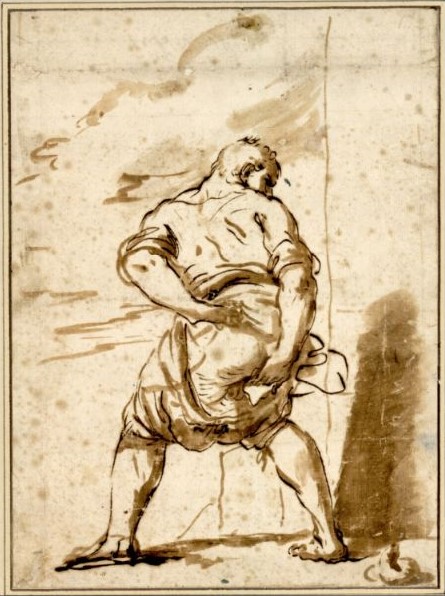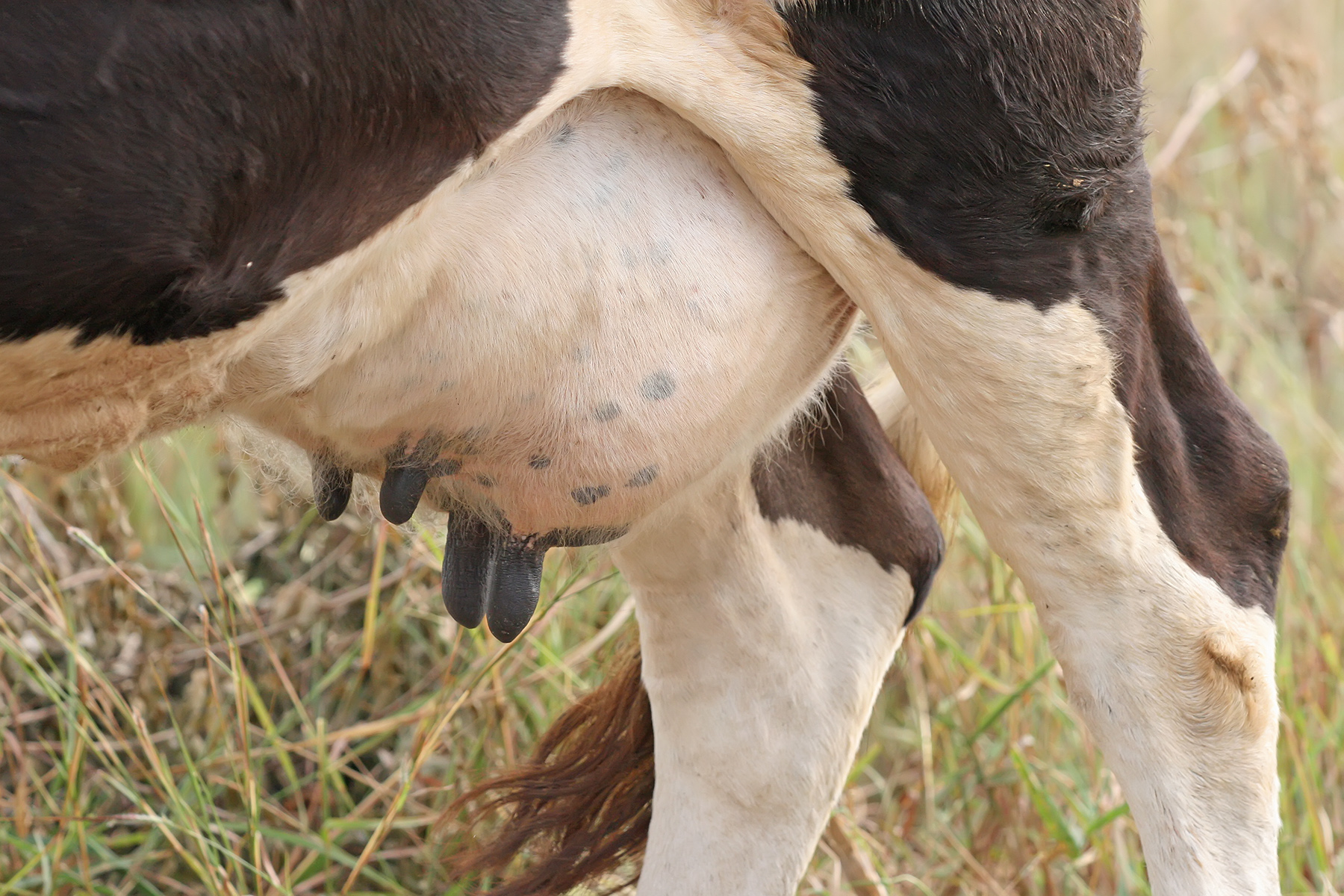|
Charles Domery
Charles Domery ( 1778 – after 1800), later also known as Charles Domerz, was a Polish soldier serving in the Prussian and French armies, noted for his unusually large appetite. Serving in the Prussian Army against France during the War of the First Coalition, he found that the rations of the Prussians were insufficient and deserted to the French Army in return for food. Although generally healthy, he was voraciously hungry during his time in the French service, and ate any available food. While stationed near Paris, he was recorded as having eaten 174 cats in a year, and although he disliked vegetables, he would eat of grass each day if he could not find other food. During service on the French ship ''Hoche'', he attempted to eat the severed leg of a crew member hit by cannon fire, before other members of the crew wrestled it from him. In February 1799, the ''Hoche'' was captured by British forces and the crew, including Domery, were interned in Liverpool, where he ... [...More Info...] [...Related Items...] OR: [Wikipedia] [Google] [Baidu] |
Prussian Partition
The Prussian Partition ( pl, Zabór pruski), or Prussian Poland, is the former territories of the Polish–Lithuanian Commonwealth acquired during the Partitions of Poland, in the late 18th century by the Kingdom of Prussia. The Prussian acquisition amounted to 141,400 km2 (54,600 sq mi) of land constituting formerly western territory of the Commonwealth. The First Partition of Poland, first partitioning led by Russian Empire, imperial Russia with Prussian participation took place in 1772; the Second Partition of Poland, second in 1793, and the Third Partition of Poland, third in 1795, resulting in Poland's elimination as a state for the next 123 years. History The Kingdom of Prussia acquired Polish territories in all three military partitions. The First Partition The First Partition of Poland in 1772 included the annexation of the formerly Polish Prussia by Frederick II of Prussia, Frederick II who quickly implanted over 57,000 German families West Prussia, there in order ... [...More Info...] [...Related Items...] OR: [Wikipedia] [Google] [Baidu] |
Liver (food)
The liver of mammals, fowl, and fish is commonly eaten as food by humans (see offal). Pork, lamb, veal, beef, chicken, goose, and cod livers are widely available from butchers and supermarkets while stingray and burbot livers are common in some European countries. Animal livers are rich in iron, copper, the B vitamins and preformed vitamin A. Daily consumption of liver can be harmful; for instance, vitamin A toxicity has been proven to cause medical issues to babies born of pregnant mothers who consumed too much vitamin A. A single serving of beef liver exceeds the tolerable upper intake level of vitamin A. 100 g cod liver contains 5 mg of vitamin A and 100 µg of vitamin D. Liver contains large amounts of vitamin B12, and this was one of the factors that led to the discovery of the vitamin. Etymology From Middle English liver, from Old English , from Proto-Germanic , from Proto-Indo-European "to smear, smudge, stick", from Proto-Indo-European - "to be ... [...More Info...] [...Related Items...] OR: [Wikipedia] [Google] [Baidu] |
Vomiting
Vomiting (also known as emesis and throwing up) is the involuntary, forceful expulsion of the contents of one's stomach through the mouth and sometimes the nose. Vomiting can be the result of ailments like food poisoning, gastroenteritis, pregnancy, motion sickness, or hangover; or it can be an after effect of diseases such as brain tumors, elevated intracranial pressure, or overexposure to ionizing radiation. The feeling that one is about to vomit is called nausea; it often precedes, but does not always lead to vomiting. Impairment due to alcohol or anesthesia can cause inhalation of vomit, leading to suffocation. In severe cases, where dehydration develops, intravenous fluid may be required. Antiemetics are sometimes necessary to suppress nausea and vomiting. Self-induced vomiting can be a component of an eating disorder such as bulimia, and is itself now classified as an eating disorder on its own, purging disorder. Complications Aspiration Vomiting is dan ... [...More Info...] [...Related Items...] OR: [Wikipedia] [Google] [Baidu] |
Urination
Urination, also known as micturition, is the release of urine from the urinary bladder through the urethra to the outside of the body. It is the urinary system's form of excretion. It is also known medically as micturition, voiding, uresis, or, rarely, emiction, and known colloquially by various names including peeing, weeing, and pissing. In healthy humans (and many other animals), the process of urination is under voluntary control. In infants, some elderly individuals, and those with neurological injury, urination may occur as a reflex. It is normal for adult humans to urinate up to seven times during the day. In some animals, in addition to expelling waste material, urination can mark territory or express submissiveness. Physiologically, urination involves coordination between the central, autonomic, and somatic nervous systems. Brain centres that regulate urination include the pontine micturition center, periaqueductal gray, and the cerebral cortex. In plac ... [...More Info...] [...Related Items...] OR: [Wikipedia] [Google] [Baidu] |
Defecation
Defecation (or defaecation) follows digestion, and is a necessary process by which organisms eliminate a solid, semisolid, or liquid waste material known as feces from the digestive tract via the anus. The act has a variety of names ranging from the common, like pooping or crapping, to the technical, e.g. bowel movement, to the obscene ('' shitting''), to the euphemistic ("dropping a deuce" or "taking a dump"). The topic, usually avoided among polite company, can become the basis for some potty humour. Humans expel feces with a frequency varying from a few times daily to a few times weekly. Waves of muscular contraction (known as '' peristalsis'') in the walls of the colon move fecal matter through the digestive tract towards the rectum. Undigested food may also be expelled this way, in a process called ''egestion''. When birds defecate, they also expel urine and urates in the same mass, whereas other animals may also urinate at the same time, but spatially separat ... [...More Info...] [...Related Items...] OR: [Wikipedia] [Google] [Baidu] |
Porter (beer)
Porter is a style of beer that was developed in London, England in the early 18th century. It was well- hopped and dark in appearance owing to the use of brown malt.Dornbusch, Horst, and Garrett Oliver. "Porter." The Oxford Companion to Beer. Ed. Garrett Oliver. 2012. Print. The name is believed to have originated from its popularity with working class people and porters. The popularity of porter was significant. It became the first beer style to be brewed around the world, and production had commenced in Ireland, North America, Sweden, and Russia by the end of the 18th century. The history of stout and porter are intertwined. The name "stout", used for a dark beer, came about because strong porters were marketed as "stout porter", later being shortened to just stout. Guinness Extra Stout was originally called "Extra Superior Porter" and was not given the name "Extra Stout" until 1840. Today, the terms stout and porter are used by different breweries almost interchangeably ... [...More Info...] [...Related Items...] OR: [Wikipedia] [Google] [Baidu] |
Udder
An udder is an organ formed of two or four mammary glands on the females of dairy animals and ruminants such as cattle, goats, and sheep. An udder is equivalent to the breast in primates and elephantine pachyderms. The udder is a single mass hanging beneath the animal, consisting of pairs of mammary glands with protruding teats. In cattle and camels, there are normally two pairs, in sheep, goats and deer, there is one pair, and in some animals, there are many pairs. In animals with udders, the mammary glands develop on the milk line near the groin, and mammary glands that develop on the chest (such as in humans and apes and elephants) are generally referred to as breasts. Udder care and hygiene in cows is important in milking, aiding uninterrupted and untainted milk production, and preventing mastitis. Products exist to soothe the chapped skin of the udder. This helps prevent bacterial infection, and reduces irritation during milking by the cups, and so the cow is less ... [...More Info...] [...Related Items...] OR: [Wikipedia] [Google] [Baidu] |
Royal College Of Physicians Of Edinburgh
The Royal College of Physicians of Edinburgh (RCPE) is a medical royal college in Scotland. It is one of three organisations that sets the specialty training standards for physicians in the United Kingdom. It was established by Royal charter in 1681. The college claims to have 12,000 fellows and members worldwide. History The RCPE was formed by a royal charter, granted in 1681, with Sir Robert Sibbald recognised as playing a key part in the negotiations. Three applications preceded this and had been unsuccessful. There were 21 original Fellows, eleven of whom were graduates or students of the University of Leiden. The Universities (Scotland) Act 1858 resulted in several items from the College's Charter becoming obsolete, and they obtained a further charter on 31 October 1861. In 1920 the College enacted changes that allowed women to be admitted on the same terms as men. The charter was amended on 7 May 2005. Edinburgh Pharmacopoeia In 1699 The College first published ... [...More Info...] [...Related Items...] OR: [Wikipedia] [Google] [Baidu] |
Fellow
A fellow is a concept whose exact meaning depends on context. In learned or professional societies, it refers to a privileged member who is specially elected in recognition of their work and achievements. Within the context of higher educational institutions, a fellow can be a member of a highly ranked group of teachers at a particular college or university or a member of the governing body in some universities (such as the Fellows of Harvard College); it can also be a specially selected postgraduate student who has been appointed to a post (called a fellowship) granting a stipend, research facilities and other privileges for a fixed period (usually one year or more) in order to undertake some advanced study or research, often in return for teaching services. In the context of research and development-intensive large companies or corporations, the title "fellow" is sometimes given to a small number of senior scientists and engineers. In the context of medical education in N ... [...More Info...] [...Related Items...] OR: [Wikipedia] [Google] [Baidu] |
Prisoner Of War
A prisoner of war (POW) is a person who is held captive by a belligerent power during or immediately after an armed conflict. The earliest recorded usage of the phrase "prisoner of war" dates back to 1610. Belligerents hold prisoners of war in custody for a range of legitimate and illegitimate reasons, such as isolating them from the enemy combatants still in the field (releasing and repatriating them in an orderly manner after hostilities), demonstrating military victory, punishing them, prosecuting them for war crimes, exploiting them for their labour, recruiting or even conscripting them as their own combatants, collecting military and political intelligence from them, or indoctrinating them in new political or religious beliefs. Ancient times For most of human history, depending on the culture of the victors, enemy fighters on the losing side in a battle who had surrendered and been taken as prisoners of war could expect to be either slaughtered or enslaved. Ea ... [...More Info...] [...Related Items...] OR: [Wikipedia] [Google] [Baidu] |
Sick And Hurt Commissioners
The Sick and Hurt Commissioners (also known as the Sick and Hurt Board, but formally and fully titled The Commissioners for taking Care of Sick and Wounded Seamen and for the Care and Treatment of Prisoners of War) were responsible for medical services in the Royal Navy. They were a separate (but subsidiary) body to the Navy Board, supplying surgeons to naval ships, providing them with medicines and equipment, and running shore and ship hospitals; they were also responsible for prisoners of war. Origins The Commissioners were established on a permanent footing from 1715 to 1806, however a series of temporary Commissions had been established prior to this date, particularly at time of war, beginning under the Commonwealth in 1653. Commissions were set up for the duration of the Anglo-Dutch Wars in 1665-7 and 1672–4. The Fifth Commission for Sick, Wounded and Prisoners, inaugurated in 1702, was instrumental in setting up Royal Naval Hospitals in naval ports both at home and abroad. ... [...More Info...] [...Related Items...] OR: [Wikipedia] [Google] [Baidu] |
Small Beer
Small beer (also known as small ale or table beer) is a lager or ale that contains a lower amount of alcohol by volume than most others, usually between 0.5% and 2.8%. Sometimes unfiltered and porridge-like, it was a favoured drink in Medieval Europe and colonial North America compared with more expensive beer containing higher levels of alcohol. Small beer was also produced in households for consumption by children and by servants. History At mealtimes in the Middle Ages, persons of all ages drank small beer, particularly while eating a meal at the table. Table beer was around this time typically less than 1% alcohol by volume (ABV). It was common for workers who engaged in laborious tasks to drink more than ten imperial pints (5.7 litres) of small beer a day to quench their thirst. Small beer was also consumed for its nutrition content. It might contain traces of wheat or bread suspended within it. In 17th century England, it was an excise class which was determined by its w ... [...More Info...] [...Related Items...] OR: [Wikipedia] [Google] [Baidu] |





.jpg)


